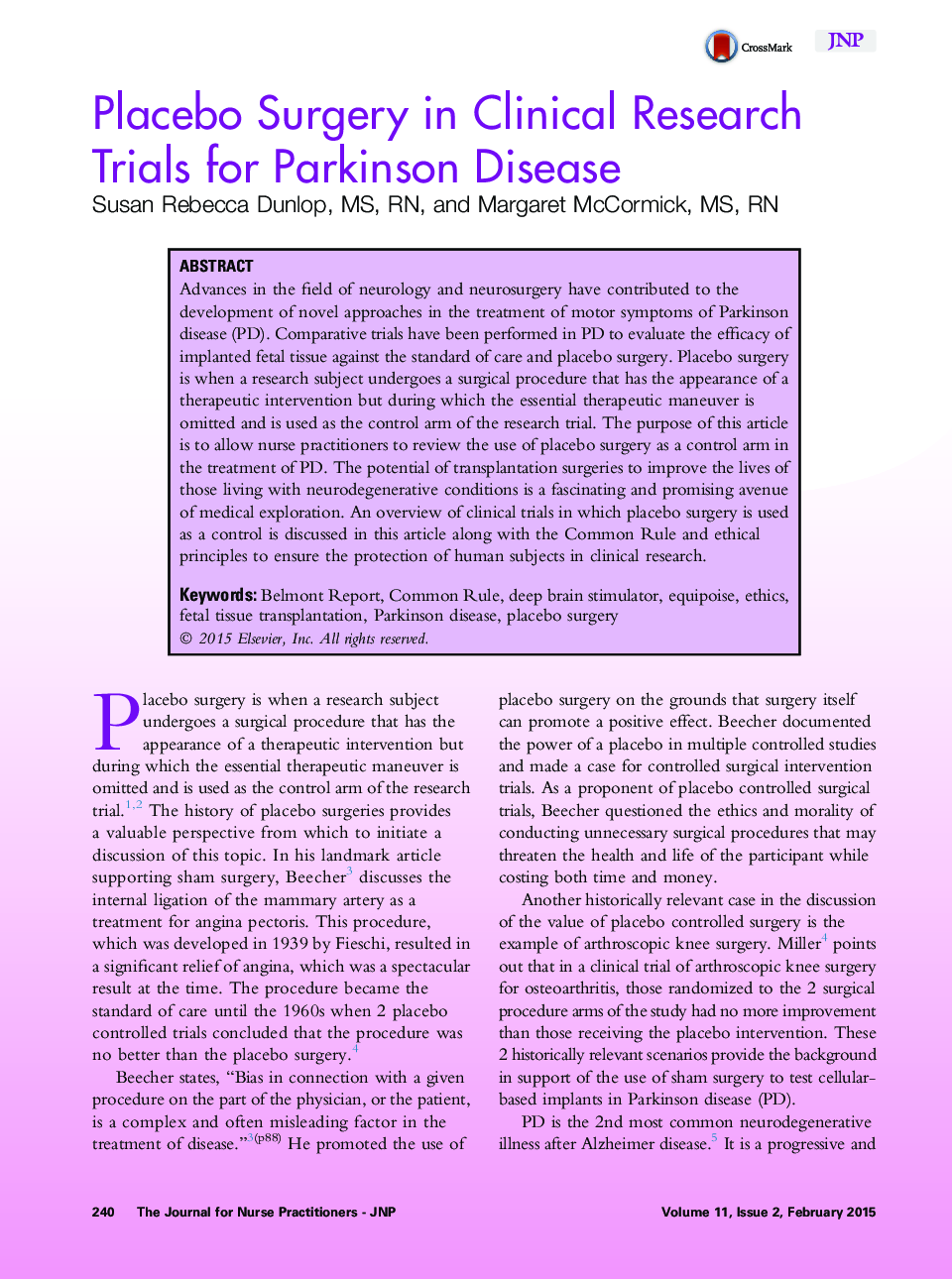| Article ID | Journal | Published Year | Pages | File Type |
|---|---|---|---|---|
| 2663366 | The Journal for Nurse Practitioners | 2015 | 8 Pages |
•The ethical principles of the Belmont Report and Common Rule as well as equipoise are critical issues to consider in surgical placebo control trials for Parkinson disease.•The dilemma with placebo-controlled trials is the concern regarding risk/benefits to the individual versus society at large.•The stakes are high in medical research but so are the risks and potential benefits.
Advances in the field of neurology and neurosurgery have contributed to the development of novel approaches in the treatment of motor symptoms of Parkinson disease (PD). Comparative trials have been performed in PD to evaluate the efficacy of implanted fetal tissue against the standard of care and placebo surgery. Placebo surgery is when a research subject undergoes a surgical procedure that has the appearance of a therapeutic intervention but during which the essential therapeutic maneuver is omitted and is used as the control arm of the research trial. The purpose of this article is to allow nurse practitioners to review the use of placebo surgery as a control arm in the treatment of PD. The potential of transplantation surgeries to improve the lives of those living with neurodegenerative conditions is a fascinating and promising avenue of medical exploration. An overview of clinical trials in which placebo surgery is used as a control is discussed in this article along with the Common Rule and ethical principles to ensure the protection of human subjects in clinical research.
